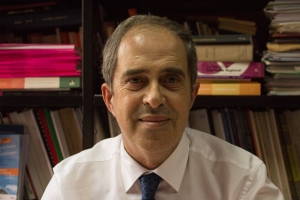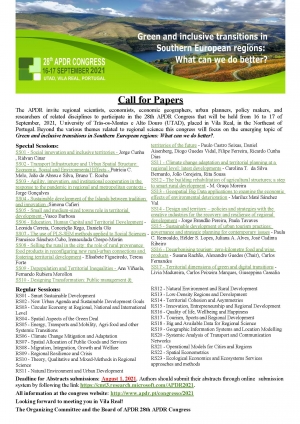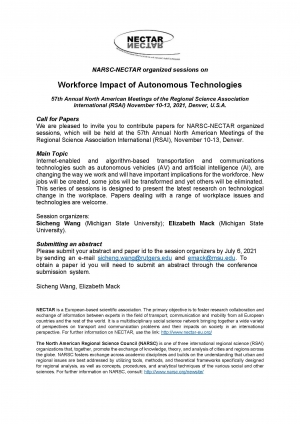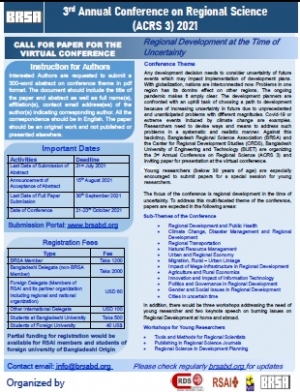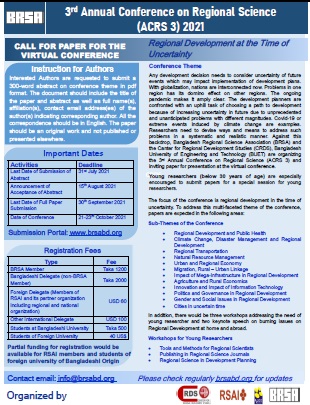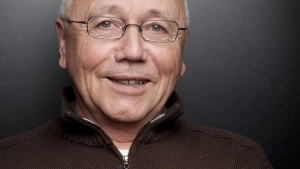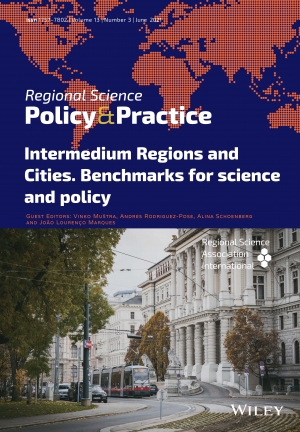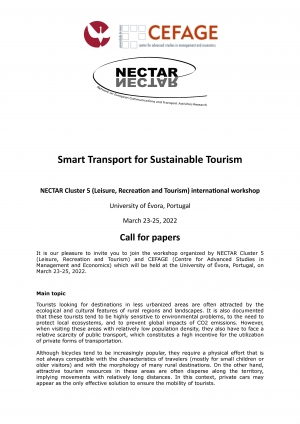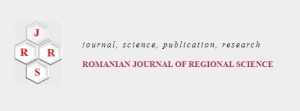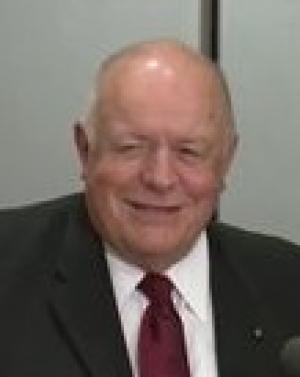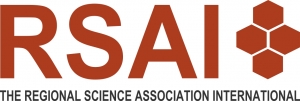Archives
Elisabete Martins
In Memoriam: Prof. Pedro Ramos (1957-2021)
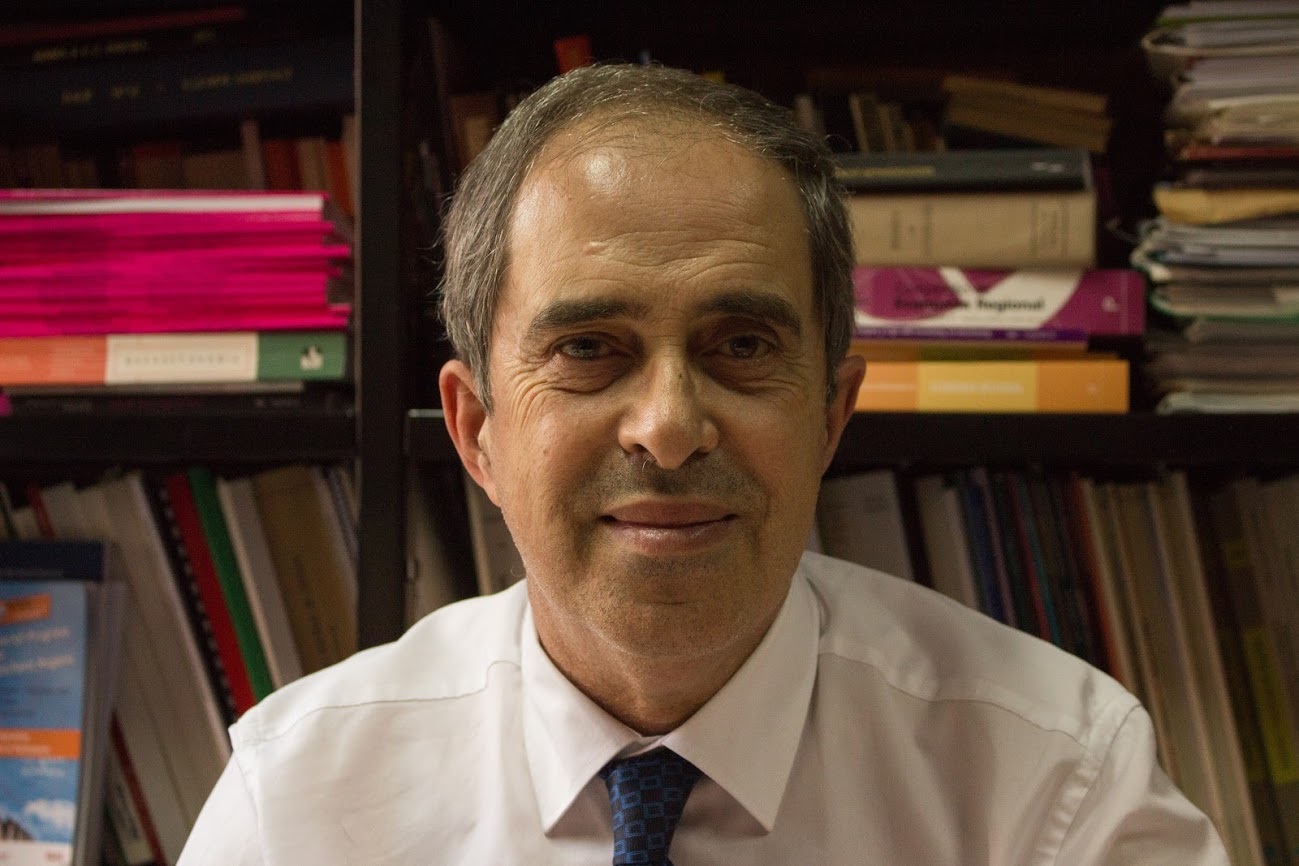 We regret to inform that Pedro Ramos passed away on July 6, 2021. He was 62 years old.
We regret to inform that Pedro Ramos passed away on July 6, 2021. He was 62 years old.
Pedro Ramos was a well-known Portuguese regional economist. He was full Professor at the Faculty of Economics of University of Coimbra and member of CeBER (Center for Business and Economics Research). His main research focus was on Macroeconomics, Regional Economics and Input-Output Techniques. Pedro was also a devoted teacher that influenced thousands of undergraduate students and hundreds of graduate students. He also supervised dozens of Master and PhD students in regional economics and input-output studies.
Pedro Ramos relationship with statistics, data, and geographical and economic indicators was shaped by the years that he served in the Portuguese National Statistics Institute and was a Director of Portuguese National Accounts. He also served as Eurostat consultant for Regional Accounts and help to design common rules for all European countries. For a decade, he helped to project regional economics has the director of the Portuguese Review of Regional Studies and an active member of Portuguese Association of Regional Development. Pedro was also one of the founders and most important supporters of the EU-REAL network where he had many friends and colleagues that will miss him. He used to say it was time to give an opportunity to the new generations, yet Pedro left us too soon and we had so much to learn with him.
Portuguese Section: Call for papers - Extended Deadline: 2021 APDR Congress,16-17 September 2021, UTAD, Vila Real
Dear colleagues,
We have decided to extend the call for papers deadline for the 2021 APDR Congress until August 1, 2021.
We take this opportunity to remind you that the congress it will be held in Vila Real from September 16 to 17, 2021 and that the theme of this edition is “Green and inclusive transitions in Southern European regions: What can we do better?”.
All the necessary information so that you can send your work and register can be found on the website of the 2021 APDR Congress.
Deadline for Abstracts submissions: August 1, 2021. Authors should submit their abstracts through online submission system by following the link https://cmt3.research.microsoft.com/APDR2021.
We look forward to your participation and see you soon in Vila Real.
Regards,
The Organizing Committee and the Board of APDR
NARSC-NECTAR session on "Workforce Impact of Autonomous Technologies"
NARSC-NECTAR organized sessions on
Workforce Impact of Autonomous Technologies
57th Annual North American Meetings of the Regional Science Association International (RSAI) November 10-13, 2021, Denver, U.S.A.
Call for Papers
We are pleased to invite you to contribute papers for NARSC-NECTAR organized sessions, which will be held at the 57th Annual North American Meetings of the Regional Science Association International (RSAI), November 10-13, Denver.
Main Topic
Internet-enabled and algorithm-based transportation and communications technologies such as autonomous vehicles (AV) and artificial intelligence (AI), are changing the way we work and will have important implications for the workforce. New jobs will be created, some jobs will be transformed and yet others will be eliminated. This series of sessions is designed to present the latest research on technological change in the workplace. Papers dealing with a range of workplace issues and technologies are welcome.
Session organizers:
Sicheng Wang (Michigan State University); Elizabeth Mack (Michigan State University).
Submitting an abstract
Please submit your abstract and paper id to the session organizers by July 6, 2021 by sending an e-mail This email address is being protected from spambots. You need JavaScript enabled to view it. and This email address is being protected from spambots. You need JavaScript enabled to view it.. To obtain a paper id you will need to submit an abstract through the conference submission system.
Sicheng Wang, Elizabeth Mack
Call For Paper for 3rd Annual Conference on Regional Science (ACRS3) of Bangladesh Regional Science Association
3rd Annual Conference on Regional Science (ACRS 3) 2021
CALL FOR PAPER FOR THE VIRTUAL CONFERENCE
Regional Development at the Time of Uncertainty
Conference Theme
Any development decision needs to consider uncertainty of future events which may impact implementation of development plans. With globalization, nations are interconnected now. Problems in one region has its domino effect on other regions. The ongoing pandemic makes it amply clear. The development planners are confronted with an uphill task of choosing a path to development because of increasing uncertainty in future due to unprecedented and unanticipated problems with different magnitudes. Covid-19 or extreme events induced by climate change are examples. Researchers need to devise ways and means to address such problems in a systematic and realistic manner. Against this backdrop, Bangladesh Regional Science Association (BRSA) and the Canter for Regional Development Studies (CRDS), Bangladesh University of Engineering and Technology (BUET) are organizing the 3rd Annual Conference on Regional Science (ACRS 3) and inviting paper for presentation at the virtual conference.
Young researchers (below 30 years of age) are especially encouraged to submit papers for a special session for young researchers.
The focus of the conference is regional development in the time of uncertainty. To address this multi-faceted theme of the conference, papers are expected in the following areas:
Sub-Themes of the Conference
- Regional Development and Public Health
- Climate Change, Disaster Management and Regional Development
- Regional Transportation
- Natural Resource Management
- Urban and Regional Economy
- Migration, Rural – Urban Linkage
- Impact of Mega-Infrastructure in Regional Development
- Agriculture and Rural Economics
- Innovation and Impact of Information Technology
- Politics and Governance in Regional Development
- Gender and Social Issues in Regional Development
- Cities in uncertain time
In addition, there would be three workshops addressing the need of young researcher and two keynote speech on burning issues on Regional Development at home and abroad.
Workshops for Young Researchers
- Tools and Methods for Regional Scientists
- Publishing in Regional Science Journals
- Regional Science in Development Planning
Important Dates
|
Submission Portal: www.brsabd.org
In Memoriam: Prof. Antoine Bailly (1944-2021)
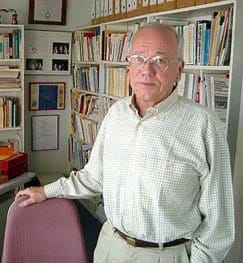 The RSAI wishes to express his family its condolences on the passing of Prof. Antoine Bailly. Antoine was a Past President of the Association; a great scholar; and an esteemed member of the Long Range Planning Committee, the body in charge of advising the current President for all complex and strategic RSAI matters.
The RSAI wishes to express his family its condolences on the passing of Prof. Antoine Bailly. Antoine was a Past President of the Association; a great scholar; and an esteemed member of the Long Range Planning Committee, the body in charge of advising the current President for all complex and strategic RSAI matters.
The latest issue of Regional Science Policy & Practice are available! Volume 13, Issue 3, Pages: 207-435, April 2021
|
Regional Science Policy & Practice Pages: 437-1091 June 2021 Issue Edited by: Vinko Muštra, Andres Rodriguez-Pose, Alina Schoenberg, João Lourenço Marques |
ISSUE INFORMATION
![]() Free Access
Free Access
Pages: 437 | First Published: 27 June 2021
INTRODUCTION
Challenges and policies for middle‐income trapped regions and cities
Vinko Muštra, Andrés Rodríguez-Pose
Pages: 438-440 | First Published: 27 June 2021
ORIGINAL ARTICLES
![]() Open Access
Open Access
Developing intermediate cities
Andrés Rodríguez-Pose, Jamie Griffiths
Pages: 441-456 | First Published: 20 April 2021
Unveiling and typifying rural resources underpinned by innovation dynamics in rural areas
Teresa Maria Gamito, Lívia Madureira, José Manuel Lima Santos
Pages: 457-477 | First Published: 31 July 2019
Transport network improvements: The effects on wage earnings
Eivind Tveter
Pages: 478-491 | First Published: 29 August 2019
POLICY REVIEW
Policy interdependence and the models of health care devolution: “Systems or federacies”?
Joan Costa-Font, Laurie Perdikis
Pages: 492-500 | First Published: 06 November 2019
ORIGINAL ARTICLES
An empirical analysis of gentrification in Istanbul
Zühal Özbay Daş, Gülşah Özşahin
Pages: 501-526 | First Published: 20 April 2020
Impact of transport infrastructure on local development in Dalmatia
Josip Grgić
Pages: 527-558 | First Published: 16 September 2020
The structural changes in Armenian Community budgets within the process of community consolidation
Tsovinar J. Karapetyan, Arpenik Muradyan, Vanine A. Yeranosyan, Erik M. Grigoryan
Pages: 559-572 | First Published: 20 October 2020
Factors impacting patent applications in European countries
Bojan Ćudić
Pages: 573-589 | First Published: 16 February 2021
INTRODUCTION
Urban resurgence in European cities
Alina M. Schoenberg
Pages: 590 | First Published: 27 June 2021
ORIGINAL ARTICLES
![]() Open Access
Open Access
Comparative urban performance assessment of safe cities through data envelopment analysis
Karima Kourtit, Peter Nijkamp, Soushi Suzuki
Pages: 591-602 | First Published: 20 March 2020
Austrian regions in the age of globalisation: Trade exposure, urban dynamics and structural change
Sascha Sardadvar, Christian Reiner
Pages: 603-643 | First Published: 02 August 2020
![]() Open Access
Open Access
A masterplan for urban resurgence: The case of Mönchengladbach, Germany (2008–2019)
Anna Herzog, Rüdiger Hamm
Pages: 644-658 | First Published: 28 August 2020
Exploring paths to creative city emergence. The example of three Polish cities
Agnieszka Orankiewicz, Maciej Turała
Pages: 659-672 | First Published: 12 January 2021
INTRODUCTION
Evidence‐based regional development policies
João Lourenço Marques
Pages: 673-674 | First Published: 27 June 2021
ORIGINAL ARTICLES
![]() Open Access
Open Access
Yiqiao Chen, Elisabete A. Silva, José P. Reis
Pages: 675-692 | First Published: 14 May 2020
![]() Open Access
Open Access
Accessibility to primary schools in Portugal: a case of spatial inequity?
João Lourenço Marques, Jan Wolf, Fillipe Feitosa
Pages: 693-707 | First Published: 08 June 2020
Landscape planning based on EBPM: Location prioritization of green space management
Hwajin Lim, Yukari Niwa, Manabu Tange
Pages: 708-728 | First Published: 09 November 2020
Arnab Bhattacharjee, Cornilius Chikwama, João Lourenço Marques
Pages: 729-743 | First Published: 12 May 2021
Smartening urban governance: An evidence-based perspective
Pages: 744-758 | First Published:11 June 2020
Full Access
Pages: 759-776 | First Published:30 June 2020
Full Access
Pages: 777-797 | First Published:22 April 2021
Full Access
A Geospatial Analysis of Temporary Housing Inequality among Socially Marginalized and Privileged Groups in India
Pages: 798-819 | First Published:23 April 2021
Full Access
Mapping destination competitiveness in Indonesia’s Nusa Tenggara Timur (NTT) province: A Malmquist–data envelopment analysis approach
Pages: 820-834 | First Published:20 April 2021
Full Access
Spillover effects of trade openness on CO2 emissions in middle-income countries: A spatial panel data approach
Pages: 835-877 First Published:10 October 2020
Full Access
Social capital and regional development in Turkey*
Pages: 878-920 First Published:01 August 2020
Full Access
Proposing a solid waste management plan in Tripoli, North Lebanon: An individual awareness based solution
Pages: 921-942 First Published:28 November 2020
Full Access
Tunisian industrial policy, location and evolution of the industrial space of the interior regions
Pages: 943-956 First Published:19 March 2021
Full Access
Spatial aggregation and resampling expansion of big surveys: An analysis of wage inequality
Pages: 957-981 First Published:19 August 2020
Full Access
Beyond the socio-economic use of fiscal transfers: The role of political factors in Greek intergovernmental grant allocations
Pages: 982-1008 First Published:29 July 2020
Full Access
Do agglomeration economies matter where natural endowments are? Lessons from Greece
Pages: 1009-1024 First Published:16 April 2021
Full Access
Opportunities and challenges for small businesses in new transit neighborhoods: Understanding impacts through in-depth interviews
Pages: 1025-1041 First Published:23 March 2021
Full Access
Interregional demand for workers and the effects of labour income taxation
Pages: 1042-1050 First Published:24 August 2020
A new approach to inter-regional network externalities in Japan
Pages: 1051-1067 | First Published:14 May 2020
Full Access
Urbanization, waitlisted children, and childcare support in a two-region overlapping generations model
Pages: 1068-1089 | First Published:13 November 2020
BOOK REVIEW
The wake up call: Why the pandemic has exposed the weakness of the west, and how to fix it by Micklethwait, John, and Wooldridge, Adrian. HarperVia, New York, NY. 2020. US$18.00, Hb, 167 pp, ISBN 978–0–06-306529-1
Pages: 1090-1091 | First Published:15 March 2021
NECTAR CL 5 "Leisure, Recreation and Tourism"
Dear Nectar colleagues,
NECTAR Cluster 5 (Leisure, Recreation and Tourism) and CEFAGE (Centre for Advanced Studies in Management and Economics) are organizing a joint Workshop about Smart Transport for Sustainable Tourism. This will be held at the University of Évora, Portugal, on March 23-25, 2022.
Please find enclosed the call for papers.
Best wishes,
--
Ana Condeço-Melhorado
NECTAR Secretary

New issue of the Romanian Journal of Regional Science, Vol. 15, Summer Issue (No.1) now available
Vol. 15 No 1, Summer
Issued June 2021
All articles are downloadable
Regional Science Perspectives on Global Sustainable Development – An Exploration of Multidimensional Expert Views by Means of Q Analysis ● pp. 1-32
by Tomaz Ponce Dentinho, University of Azores, Angra do Heroismo, Portugal, Karima Kourtit and Peter Nijkamp, Open University of the Netherlands, Heerlen, the Netherlands, and Alexandru Ioan Cuza University, Iasi, Romania
The Regional Integration of Bioraffineries in France: An Approach by The Territorial Innovation Models ● pp. 33-51
by Ion Lucian Ceapraz, Polytechnic Institute Unilasalle, Beauvais, France, Miravo Rakotovao, Chamber of Commerce and Industry, Hauts-de-France, France, Loïc Sauvée, Polytechnic Institute Unilasalle, Beauvais, France
Teleworking in Post-Pandemic Times: May Local Coworking Spaces Be the Future Trend? ● pp. 52-76
by Irene Manzini Ceinar, The Bartlett School of Architecture, University College London (UCL), UK, Ilaria Mariotti , DAStU, Politecnico di Milano, Italy
On Regional Development in Poland and Romania ● pp. 77-97
by Gabriela Chivu and Romana Emilia Cramarenco, Babeș Bolyai University, Cluj Napoca, Romania
by Ifigeneia-Dimitra Pougkakioti, University of Thessaly, Greece
BOOK REVIEW
by Amalia Cristescu, The Bucharest University of Economic Studies, Romania
Journal website: http://www.rjrs.ase.ro/index.php/current-issue/
Winner of the 2021 Hirotada Kohno Award
 Prof. Kingsley Haynes, GMU, has been unanimously acclaimed by the jury, made up of Eduardo Haddad, Serena Erendira, Roberta Capello, and Bob Stimson, winner of 2021 Hirotada Kohno Award.
Prof. Kingsley Haynes, GMU, has been unanimously acclaimed by the jury, made up of Eduardo Haddad, Serena Erendira, Roberta Capello, and Bob Stimson, winner of 2021 Hirotada Kohno Award.
The Hirotada Kohno Award is the most important prize for thanking people for their outstanding service to the RSAI. The jury defined Prof. Haynes as “one of the unrivaled icons in regional science, with an unprecedented international outreach. He has been a lifetime contributor to regional science, not only in North America but also in Europe, Asia, Latin America, and the Pacific. Professor Haynes has served RSAI in a wide variety of capacities. In addition to the formal service roles that Professor Haynes has performed, it is also noteworthy that he has been an energetic ambassador for Regional Science both inside and outside of academia. His impressive and effective participation in most regional science activities around the world for many decades deserves recognition and gratitude.”
Congratulations, Kingsley!
Call for Candidates to be Nominated as the New Executive Director of the Regional Science Association International
As the position of the Executive Director of the Regional Science Association International (RSAI) will become vacant by the end of 2021, RSAI is launching a call for RSAI members who wish to be nominated as candidates in the election of the Executive Director of RSAI for the next three-year term starting 1 January 2022.
Any RSAI members who wish to be nominated as a candidate for the Executive Director of RSAI should send the following items to This email address is being protected from spambots. You need JavaScript enabled to view it. by 20 August 2021:
- A two-page statement outlining the reasons for your interest in becoming the next Executive Director of RSAI and your strategy in managing the day-to-day operations of the Association;
- A two-page CV with a picture.
According to Article V, section 3 of the RSAI Constitution, the Executive Director shall serve a three-year term of office. She/he shall be the chief executive officer in charge of setting and managing programs. The Executive Director shall be the chief operating officer in charge of implementing the Council’s policies, overseeing the day-to-day operations of the Association, and establishing contacts with new regional science organizations throughout the world. The duties of the Executive Director shall encompass those normally associated with the positions of Secretary but would have joint authority with the Treasurer for the finances of the RSAI and issuing cheques to cover the Association’s operating expenses and the preparation of a financial statement to be submitted, by March 31 of each year, to the Council’s standing Finance Committee, in charge of financial planning and budgeting. The Executive Director shall oversee the production and distribution of a newsletter to the membership, shall maintain the roll of members and the association’s website, shall oversee the collection of annual dues and the conduct of elections, and shall serve as international conference coordinator, keeping a calendar of regional science meetings and events throughout the world, providing advice on their scheduling, and monitoring the dates of other meetings to minimize scheduling conflicts. The Executive Director shall also have responsibility, as designated by the Council, for the organization and operation of the World Congresses of the Association. General responsibilities of the Executive Director can be seen here (ED_Responsibilities.pdf).
In order to help the Executive Director organize the association and its meetings around the world, the RSAI will provide € 7,500 in travel costs and € 10,000 for secretarial assistance and accounting yearly.
The Nomination Committee for this election consists of Eduardo A. Haddad (Chair), Neil Reid, André Torre, Rachel Franklin, and Serena Serrano. After receiving applicants, the Nomination Committee will nominate the candidates to be voted by the Members of the RSAI Council. The results will be diffused through RSAI News and on the RSAI webpage.
About Us
The Regional Science Association International (RSAI), founded in 1954, is an international community of scholars interested in the regional impacts of national or global processes of economic and social change.

